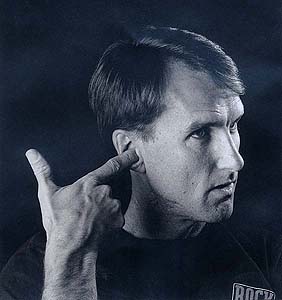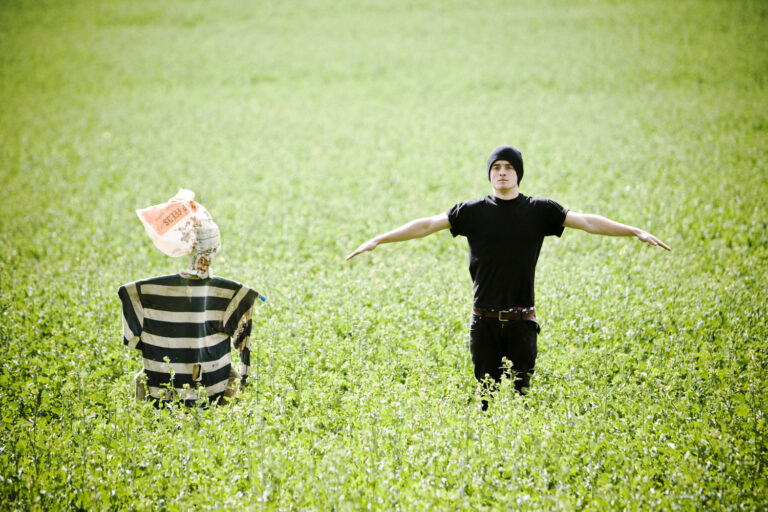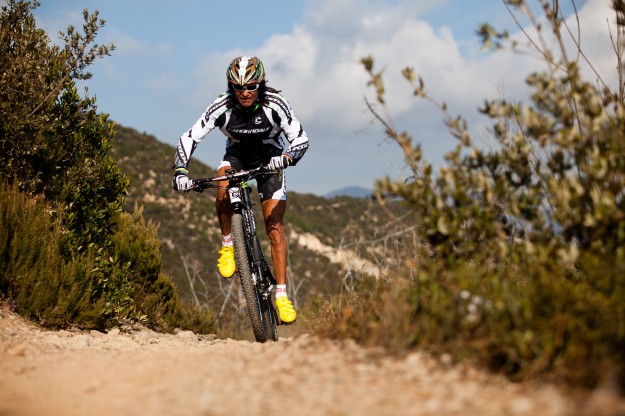
With his distinctive dreadlocks poking out of a baseball cap, skinny build and dark skin, David ‘Tinker’ Juarez is universally regarded as a legend in mountain biking.
He’s been there right from the beginning and has remained competitive through the years, first focusing on cross country racing and then becoming a dominant force in 24-hour and other endurance events.
Sitting down in the café of the Hotel Florence, the location of Cannondale Factory Racing’s pre-season get-together, a chance to soak up the sun in Italy and entertain the world’s media, Tinker relaxes into the chair, slides his bottle of beer across the desk and leans forward over the table.
I’m now face to face with one of the undisputed stars of mountain biking. For a moment I loose my train of thought, a quick glance at my notes to compose myself, and I click the Dictaphone on and ask my first question.
You see, during my younger years when I was just starting out in mountain biking (this was during the mid-90s) Tinker Juarez was a regular star of the young sport among the pages of the magazines that offered my only route into this exciting past time.
Tinker was a formidable force on the cross-country scene, and was twice selected to represent his country at the Olympics, in 1996 and 2000. In latter years Tinker moved from the fast paced racing of cross country to endurance events, specifically focusing on 24-hour races, as this new format began taking off in popularity.
Where did it all start Tinker? You’ve been racing in the Cannondale colours for 18 years now.
I got into mountain biking , I was in BMX before for 15 years, and then in 1986, when it looked like my BMX career wasn’t going anywhere and I was getting to the age that I shouldn’t be here anymore, mountain biking just came in at the right time. I had an offer from a bike company and it was just the right time. I didn’t have any direction where I was going with my cycling
So you where just in the right place at the right time?
Yes. And I met the right people and someone said you could do well in the sport. But I thought having gears and stuff, BMX was always one speed, was a like a treat almost.
Was it an easy transition from BMX to MTB?
Bike handling was easy for me, riding jumps and stuff, but as far as going out in the woods, it was all kind of new for me. I’ve always been an outdoors person, but I never really spent time in the trails riding my BMX bike, but I just like being outside. Finding a sport like mountain bike, it just made sense.
And 18 years later, you’re still riding and racing mountain bikes. What has been the key to your continued motivation?
You know, you always want to do it for a living, it’s your dream to ride your bike all your life, as a kid you think it would be cool to do this for a job, and then to have it as your job and getting paid for it. Then you try to learn how to maintain it and do what the sponsors like and doing well in races. And it’s cool to meet people you’ve never met and treat them with respect.
I think a big part of it is, because in BX I got sponsored by Mongoose in 1976, it was such a thrill as a kid – I was in high school getting paid, the travelling and free trips, it was cool. You come to school bandaged up sometimes! And I just learned from that.
Six years with Mongoose in BMX, I learned that being a pro was a great thing and being with the same company that treat you every year real special, meant a lot to me. So I think as I’ve gotten older, I’ve wanted that more and more and I got with Cannondale in 1994, so it’s been a long career with them. I started mountain biking in 1986, so it was a short window before I got picked up by Cannondale.
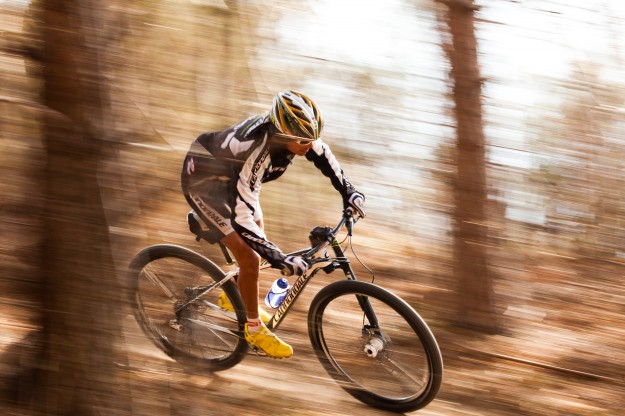
They’ve looked after you then?
Yeah, they’ve never had a complaint with me. Every year it’s never been that I’ve had to stress where I’m going next year, I’ve felt confident I was going to have a contract. Some of the guys that were on our team, a lot of years I was with Cannondale, they decided to go in a different direction with another team. I’ve been with Cannondale during the highs and when the salaries started to fizzle down, I stuck with them because I was still doing what I love. I wasn’t going to go to another team and go ‘oh you’re paying me a thousand dollars more’, it was just they treated you like family. It was a good thing at the time, the Montgomery’s were like family too, made the company happen and they really looked up to me a lot.
You mentioned the highs. What have been your highlights throughout your career?
I think the beginning of my career with Cannondale, in 94/95/96; I made it to the Olympics. And winning the nationals ever year – I think I won it back to back for three years, winning the world cups and then making the Olympic team twice in my career. 1994 was a silver medal in Italy. Still as of today I don’t think anybody has come up to bettering that result.
How’s riding Olympic compared to world champs or world cup?
A world championship is for the cycling community, but the Olympics is for the world that don’t know about cycling, just know that you’re an America.
So the pressure must be a lot higher?
It is extremely high, and you know you do it even though you in the Olympics you still aren’t getting paid to do it, for the whole year. It’s not like you work your whole way towards the Olympics and you don’t know what’s going to happen after that.
The same approach for any race then?
Whatever happens I’m still going to be racing the following week.
London Olympics – who can win?
We have some strong Americans now, they’ve matured, and a couple of guys, Todd Wells, his chances are probably the number one choice to make the Olympic team. I think he has a really good shot of getting into the top ten, it would be a fantastic result. Medalling is still, I think we’re still a little of the programme. I don’t see there being an American on the front line of the grid yet, and I think it’s so important, the guys on the front know how important if they lose that top five position, their chances are out of the medals so those guys are going to be going so hard.
 Why is there no American athlete with the potential to win?
Why is there no American athlete with the potential to win?
I would just say that we have a chance, but realistically, unless an American can win a world cup race, which we haven’t, that would give you a better chance of thinking you can win the Olympics. So it’s really it’s the guys that have won world cups and tasted world championship victory are always going to be the favourite. I think we are the dark horse, and could come in as a surprise. Winning would be a shock for me, it would be the best thing for Americans.
What would be your advice for someone getting into long distance mountain bike events and wanting to get sponsored. It’s hard getting sponsored
Yes it’s very hard getting sponsored, there’s a lot of stuff going on, you have to keep your motivation high, train hard, and do your duties at home, going to school and the whole nine yards. I think always just trying to find things to improve. There’s training at home with group ride’s high intensity guys, finding people who will help you at the next race, that’s going to help you. I just think that doing the right races, important races, will give you the right contacts, meeting the right people
In terms of racing 24-hours, what’s the biggest challenge for?
As a step into 24-hour racing, it’s good to do team racing first, and gets you used to be on the bike for the whole 24-hours, and getting an idea of what it’s like to be up all night, riding with lights. Endurance racing, in the states we have some 12-hour races, that’s half the face and a good build-up. You can see how your energy levels are and think ‘yeah I can keep going’. Getting the miles in, getting in your head used to being on the bike for that long. If you’re just doing XC and decide to do a 24-hour race, that’s not the right approach.
What is the appeal of 24-hour racing for you?
I like it because I like training a lot. My training isn’t special, just logging the miles. I might train 26-hours a week, but each training ride is an important ride. I won’t just go out, I’ll time myself. I figure to be a good mountain biker you have to be a good climber, so I’ve learner to try to average 15,000-20,000ft a week, and on an easy day that could be 3-hours, that’s plenty.
Do you do all your training on a mountain bike? Or make use of a road bike?
A lot of it is on the road, because it’s so long. I really find that the strength comes from the road, and I build confidence on my mountain bike. I’m not a road racer, but I know when I feel really good on it, and really keep a high pace, at high speed. And I know my strength will be good on a mountain bike.
It’s easier to train on the road bike then?
You don’t have any obstacles in your way, you can stay in one gear for longer. Mountain biking, well you’re constantly shifting, and you know, it’s important, depending how you train, I like to save my body, and I look forward to the race. I train because I want to build me speed and strength, and technically, yeah I have a weak point that could drop me, but most of the races are 16k, that’s the longest, and you’ve just got to deal with that. I’m 50 now and I don’t need to prove anything, I’ll take some risks, but I won’t go overboard. If I don’t go top five because I didn’t risk it on a descent, I’m ok with that.
<At this point an injured Marco Fontana walks in, hold an injury>
Have you had any bad injuries?
Like I said, I know how to hold back. I just think I don’t need to try and prove anything, and just enjoy it and I know my strong points, I’ll be here in Finale Ligure in May for the World Solo 24 hour MTB Championships, and Cannondale would love to see me race here. And I’ll have to ride differently for sure.
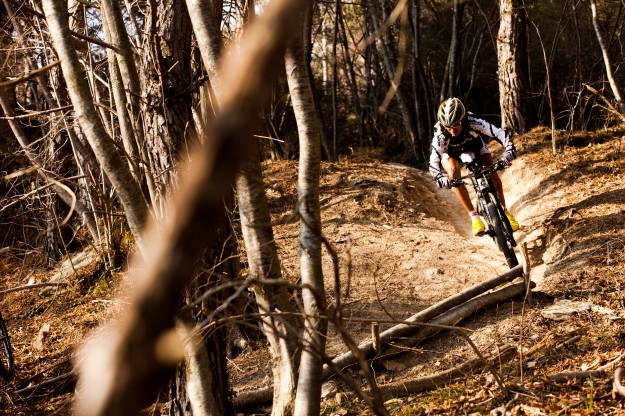
Do you still have many years of racing in you then?
I think one thing that has hit me now I’ve got to this age, I’ve got my son, he’s five now, and when he was born, it kind of opened my eyes in a different way, I look at life differently. Now I want to make sure I see him and graduation, and be his Dad and see what he does. He’s a smart kid. And yeah I think it’s made me look at life differently it gives me more energy, and I’m excited to show him what I do, so you always find things that motivate you.
So there you go, a fascinating and insightful chat with most of the longest serving mountain bike racers.


